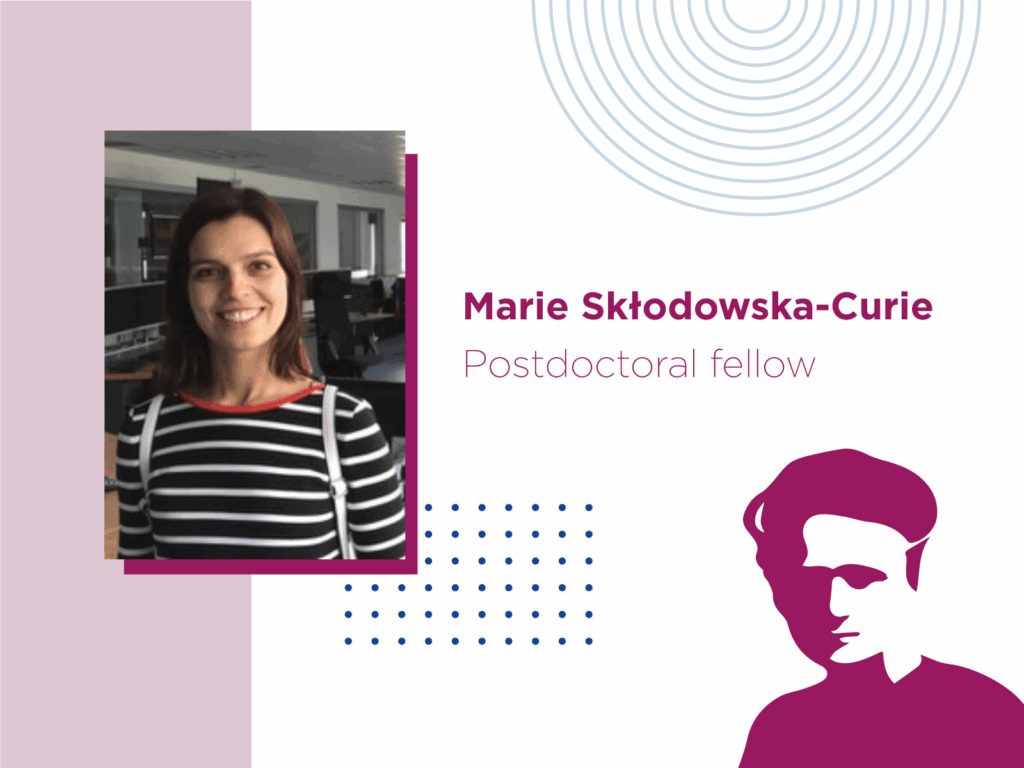New therapeutic strategy to halt Melanoma metastasis
The researcher Vanessa Rodrigues has recently been awarded a Marie Skłodowska-Curie (MSCA) Postdoctoral fellowship, funded by the European Union. The funding, worth €207.2 k, was allocated to the project “Target-MelaneX – Targeted therapy to block melanoma progression through peptide phage-display profiling of melanoma cells and derived extracellular vesicles“, aiming to identify peptides that act on melanoma cells – the deadliest form of skin cancer – and also on extracellular vesicles – small particles released by cells used in intercellular communication. This new therapeutic strategy aims to halt the formation of metastasis, one of the main causes of death in invasive melanoma.
Vanessa Rodrigues clarifies that this grant’s results “will benefit various scientific communities, including those working in Biomaterials, Peptides, and Cancer research.” By targeting both melanoma cells and extracellular vesicles, this project introduces a dual-target strategy with the potential to transform our understanding of melanoma biology and open new paths to more effective therapies,” she adds.
Vanessa chose the Molecular Biomaterials group due to its “vast experience in various techniques covered in the project, including biomaterials engineering, biotechnology, and synthetic chemistry. Helena Azevedo has an extensive network of collaborators working in phage display (in Portugal and the UK) and peptide therapeutics (in the USA), which can provide excellent collaborative opportunities.” This project will be carried out in collaboration with Sara Pinto Coelho, MD, from the MOBILIsE Hub partner, IPO Porto, a Hospital in Porto specialising in oncology treatment and research.
An engineer by training, with a PhD in Molecular Genetics and Pathology (from ICBAS and FMUP) and research experience developed at Ipatimup, Vanessa Rodrigues continued her scientific career at the National University of Singapore, focusing on cancer and neurodegenerative diseases. After six years leading a research project in Asia, she returned to Porto and to i3S to embrace a new challenge and promote opportunities for collaboration between Asia and Portugal.
Building on the Molecular Biomaterials group’s success in obtaining MSCA PF funding, Vanessa will become the third fellow to join the group, following Vijay Pal (2023) and Carlos Redondo-Gomez (2024).

The MSCA fellowships are highly competitive (only 1,700 proposals were selected for funding across the European Union, out of more than ten thousand submissions) and aim to support the creative and innovative potential of postdoctoral researchers who propose high-impact, excellent research projects and who wish to acquire new skills through advanced training and international, interdisciplinary, and intersectoral mobility. The final decision also takes into account criteria such as the quality of the scientific supervisor and the host institution.
In the 2024/2025 edition, the Marie Skłodowska-Curie Fellowships received a record number of applications: 10,360, of which 285 came from Portugal. Of these nearly three hundred Portuguese applications, 40 were selected — 15 funded under the main program and 25 others through the ERA Fellowships program, as is the case for Vanessa.
Named after the Franco-Polish scientist awarded two Nobel Prizes and renowned for her work in the field of radioactivity, these fellowships fund excellent research and innovation and support researchers at all stages of their careers. They promote the acquisition of new knowledge and skills through mobility across countries and continents, and through exposure to different sectors and disciplines. Their goal is to foster the creative and innovative potential of PhD researchers who propose outstanding, high-impact research projects and who seek to gain new competencies through advanced training and international, interdisciplinary, and intersectoral mobility.
